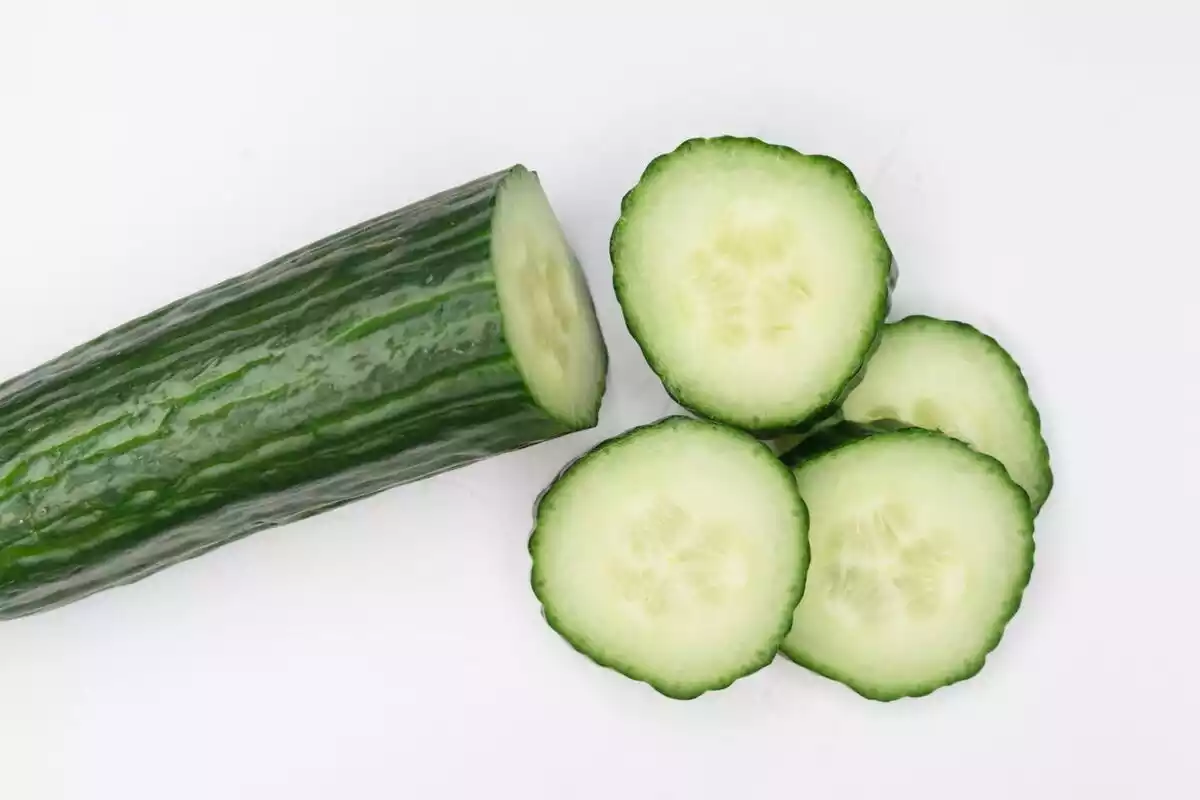It is well known that both fruits and vegetables provide us with a vast number of nutrients and that they have a great variety of beneficial properties that help us maintain our organism healthy and with less risk of diseases.
But do we know which these benefits are? Each food is characterized by some attributes and distinctive features; in this article, we will focus on the cucumber, its properties, and benefits for human health.
What is a cucumber?
Is cucumber a fruit? Although a lot of people believe it’s a vegetable, yes, it is a fruit from the Cucurbitaceae family, closely related to watermelons, courgettes and some types of pumpkin. The cucumber plant is a vine that provides these cylindrical and edible fruits throughout the year.
Another less known fact is that they originate in India. However, today we can find different varieties of cucumber grown all over the world. This fruit can be eaten raw or fresh and it can be integrated intoall kinds of recipes such as salads, cucumber water, creams, soups, and shakes.
Most types are cylindrical, but they are different in length and size. Its skin also varies in color –from green to white- and it can either be smooth or wrinkled.
If we peel the skin off, inside, there is a pulp that is light green, thick but watery and crunchy. In the inner core, we find numerous seeds, also pulpy and edible. However, seedless varieties are now grown in greenhouses.
If there is something that distinguishes them from other fruits or foods from the ground is their popularity. Its mild and refreshing taste, as well as its many benefits, make cucumber one of the main foods in healthy diets in kitchens around the world, especially in summer.

Nutrition facts and benefits
The cucumber has a high content of beneficial nutrients, water and some compounds that help to treat and prevent some diseases or physical conditions.
Also, another benefit of these fruits is that they are low in calories and they contain a considerable amount of dietetic fiber, so they are perfect to include in a diet to lose weight.
In the following part of this article, we will find out about some of the main properties and benefits of the cucumber that are supported by scientific evidence.
1. It is rich in nutrients
As we previously said, cucumbers are low in calories but abundant in a lot of essential vitamins and minerals for the organism. This fruit is also extremely moisturizing as it is composed of 92% water.
A cucumber that weighs 300 g (with skin) contains approximately the following nutrients:
- 45 calories
- 11 grams of carbohydrates
- 2 grams of proteins
- 2 grams of dietetic fiber
- 14% of the recommended daily amount of Vitamin C
- 62% of the recommended daily amount of Vitamin K
- 10% of the recommended daily amount of magnesium
- 13% of the recommended daily amount of potassium
- 12% of the recommended daily amount of manganese
According to nutritionists, to maximize the nutrient content ingested they must be eaten unpeeled, as most vitamins, minerals, and fiber are found in the skin.
2. It favors hydration
As we have seen in the previous part of this article, cucumbers are composed of approximately 92% water, so they are useful in promoting hydration and helping to meet daily fluid needs.
Water is essential for the proper functioning of our body, as it is involved in processes such as temperature regulation and the transport of waste products and nutrients. Adequate hydration favors every function of the body, from physical performance to metabolism.
Finally, while most of our fluid needs are met by drinking water on a regular basis, with some foods, we can get up to 40% of the total amount of water we drink.
3. It promotes the regularity of bowel movements
Dehydration is a significant risk factor for constipation, as it can upset the water balance and make it difficult for feces to move in the intestines.
As cucumbers are rich in water and promote hydration, eating this fruit can help us to prevent constipation, improve the feces consistency and help us maintain regularity in bowel movements.
They are also a great source of soluble fiber -particularly the skin-, which helps to regulate stool and increase the frequency of bowel movements.
4. It is rich in antioxidants
According to some studies, cucumbers contain great quantities of flavonoids and tannins, two groups of antioxidant compounds that are particularly effective in blocking the harmful effects of free radicals.
Antioxidants are molecules that block oxidation and the formation of free radicals. The accumulation of these harmful free radicals can lead to various types of chronic diseases such as heart, lung and autoimmune diseases, as well as to different kinds of cancer.
5. It can help to lower blood sugar levels
Studies in animal models suggest that cucumbers can reduce blood sugar levels and prevent some complications related to diabetes mellitus.
Although this evidence is limited to laboratory studies in animals, it opens a small window to research on how this fruit can affect blood sugar regulation in people.
6. It can contribute to weight loss
There are different ways in which these fruits can contribute to weight loss. First of all, they are low in calories and rich in water and fiber, which, among many other things, favors the feeling of satiety and allows you to eat more of these without accumulating additional calories that lead to weight gain.
Including cucumbers as one more ingredient in salads or garnishes can be a great idea when looking for healthy alternatives for these dishes.
7. It favors the health of skin and body tissues
Cucumbers are rich in minerals that help develop strong and healthy connective tissues in muscles, ligaments, and tendons.
Drinking their juice favors the maintenance of a healthy and shiny skin thanks to the large amounts of minerals and antioxidants contained in this fruit.
